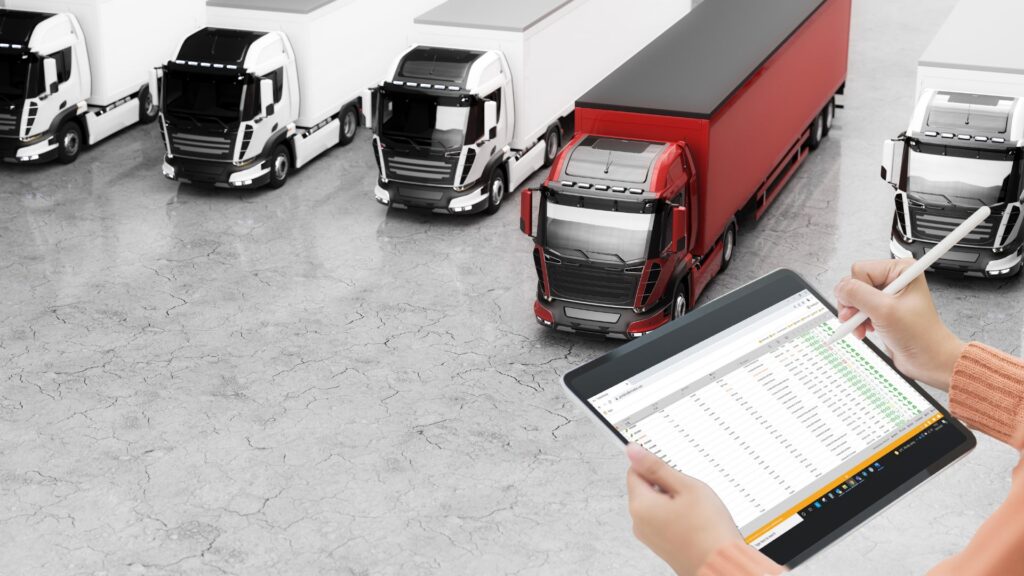
Amid the rapidly developing field of fleet management, where efficiency, safety, and cost-effectiveness are of paramount importance, technology has emerged as a game-changer. Telematics and GPS tracking systems have revolutionised the way fleets are managed, offering a wealth of benefits that can propel your operations to new heights. In this blog, we’ll delve into the advantages of using these systems and provide valuable tips for selecting the right solution for your fleet.
The Benefits of Telematics and GPS Tracking Systems
1. Real-Time Vehicle Tracking
One of the most significant advantages of telematics and GPS tracking is the ability to monitor your fleet in real-time. This feature allows you to keep an eye on your vehicles’ location and status 24/7. Always knowing where your assets are enhances route optimisation, minimises delays, and improves customer service.
2. Enhanced Safety
Telematics systems provide valuable insights which not only reduces the risk of accidents but also lowers insurance premiums. The system can instantly alert you to things such as brake, load or tyre issues, which increases the safety of both the driver and other road users.
3. Fuel Efficiency and Cost Reduction
Fleet fuel costs can be a substantial expense. Telematics and GPS tracking systems offer features like idle-time monitoring and efficient route planning, helping you cut fuel consumption and reduce operational costs. By analysing data on fuel usage, you can identify trends and implement strategies for better fuel efficiency.
4. Maintenance Optimisation
Predictive maintenance is a game-changer for fleet managers. Telematics systems can monitor vehicle health and alert you to maintenance needs before they become costly breakdowns. This proactive approach not only reduces repair expenses but also extends the lifespan of your vehicles.
5. Improved Customer Service
With the ability to provide accurate arrival times and respond quickly to customer enquiries, you can elevate your customer service to new heights. GPS tracking allows you to reroute vehicles in real-time to accommodate last-minute changes, ensuring your customers’ needs are met promptly.
6. Compliance and Reporting
Telematics systems help you stay compliant with regulations and industry standards. They can generate reports and information when needed, or requested by the DVSA for example, and ensure that your fleet operates within legal parameters.
Tips for Selecting the Right Telematics and GPS Tracking Solution
Now that you’re aware of the numerous benefits, here are some tips to help you choose the perfect telematics and GPS tracking system for your fleet:
1. Define Your Objectives
Begin by clearly defining your fleet management goals. Determine what you want to achieve with the system, whether it’s improving safety, reducing costs, or enhancing customer service. Your objectives will guide your choice.
2. Scalability
Choose a system that can grow with your fleet. Whether you have ten vehicles now or plan to expand to hundreds, a scalable solution ensures your investment remains viable as your fleet evolves.
3. User-Friendly Interface
A user-friendly interface is essential for effective fleet management. Look for a system that is intuitive and easy for your team to navigate. Training your staff should be a straightforward process.
4. Customisation Options
Each fleet is unique, so seek a system that allows customization. Tailoring the software to your specific needs ensures you get the most value from your investment.
5. Integration Capabilities
Consider how the system integrates with your existing software and tools. Seamless integration can streamline operations and provide a more comprehensive view of your fleet’s performance.
6. Data Analytics
Advanced analytics and reporting capabilities are crucial for turning data into actionable insights. Look for a system that provides detailed reports and data visualisation tools.
7. Customer Support
Quality customer support is vital when issues arise, or if you need assistance with the system. Ensure the provider offers reliable support and training resources.
8. Cost-Benefit Analysis
While it’s essential to consider your budget, remember that the benefits of telematics and GPS tracking systems often outweigh the initial costs. Conduct a thorough cost-benefit analysis to justify your investment.
In conclusion, the benefits of using telematics and GPS tracking systems in fleet management are numerous and substantial. They empower you to make informed decisions, enhance safety, optimise operations, and ultimately boost your bottom line. By following these tips and carefully selecting the right solution, you can harness the full potential of this technology and take your fleet management to the next level.